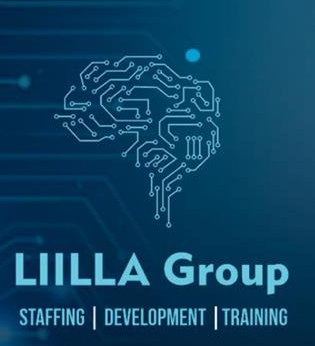Overview of Wrap
WRAP is an independent, non-profit organization dedicated to the certification of lawful, humane and ethical manufacturing throughout the world.
In addition to information on WRAP’s purpose, principles, and procedures, this site contains guidelines and forms for factories interested in becoming WRAP-certified and an application form for monitors seeking WRAP accreditation
Apparel producers are accountable for their global production practices to consumers, retailers, governments, and others. Several organizations are dedicated to setting manufacturing standards, particularly regarding human rights. WRAP is unique among apparently similar organizations because it combines all of the following important attributes.
Market-driven, High Standards
Consumers and retailers ultimately drive manufacturing, but from the factories’ immediate perspective, the market for their products consists of the companies that source apparel and footwear. Increasingly, factories will be obliged to heed requests of companies requiring compliance with WRAP principles and procedures. The American Apparel and Footwear Association (AAFA), whose members produce 85% of sewn products sold at wholesale in the United States, gave birth to the idea of WRAP in 1998 and promotes it to this day. Other major international business and industry associations have endorsed not only WRAP’s principles but also its Apparel Certification Program, which is the world’s largest independent program.
Independent from the Industry
In its governance and finances, WRAP is independent of the industrial sectors for which it offers factory certification programs. Since its incorporation in 2000, its charter mandates that the majority of its Board members be from non-industry professions. Representatives from varied industries bring a needed perspective to the Board since the purpose of WRAP is to make progress in the workplaces of their industries. However, the Board members drawn from academia, civil society, and other arenas can and do occasionally outvote them. WRAP is not a membership association to which companies or licensers, such as universities, pay (often substantial) dues. Factories pay WRAP an application fee. Monitors pay WRAP an annual registration fee for each country in which they seek WRAP accreditation. Each factory then negotiates an inspection fee with the accredited monitor of its choice—WRAP does not set these fees nor benefit from them.
Factory-based
WRAP certifies individual factories, many of which are small or medium businesses contracted (or subcontracted) by brand managers or retailers. The certification is not for the brand and not for the company that owns it. Factory certification, on the other hand, places responsibility for improving workplace conditions squarely on the shoulders of those who own and operate a specific facility.
Eliminates Duplication
A side benefit of factory-based certification is that it eliminates costly and time-consuming duplication of monitoring efforts. WRAP’s raison d’être is to provide a standard against which factories are measured regarding their treatment of workers, the natural environment, and other concerns. Before WRAP was established, a factory manager needed to invest several workdays and thousands of dollars to comply with audits (usually limited to human rights) demanded by public interest groups. Some factories undergo seven or eight audits a year. A WRAP certification now replaces many of these audits as more and more major brand managers and retailers are accepting it as they would their own. (WRAP’s goal is to make its program the one audit that all parties feel confident in adopting.) This results in savings of time and money for the factory, lower prices for the consumer, more business for the factories, and increased and better job conditions for the workers. On the other hand, WRAP places great demands on the manufacturers. As mentioned above, they need to comply not only with general principles, but also with detailed procedures and record keeping.
WRAP has not only fostered corporate social responsibility, but has contributed to greater productivity, lower turnover, improved communications between management and employees, safer and more secure working conditions, and greatly improved worker morale
Wrap 12 Laws
Compliance with Laws and Workplace Regulations Facilities will comply with laws and regulations in all locations where they conduct business.
Prohibition of Forced Labor Facilities will not use involuntary or forced labor.
Prohibition of Child Labor Facilities will not hire any employee under the age of 14 or under the minimum age established by law for employment, whichever is greater, or any employee whose employment would interfere with compulsory schooling.
Prohibition of Harassment or Abuse Facilities will provide a work environment free of supervisory or co-worker harassment or abuse, and free of corporal punishment in any form.
Compensation and Benefits Facilities will pay at least the minimum total compensation required by local law, including all mandated wages, allowances & benefits.
Hours of Work Hours worked each day, and days worked each week, shall not exceed the limitations of the country’s law. Facilities will provide at least one day off in every seven-day period, except as required to meet urgent business needs.
Prohibition of Discrimination Facilities will employ, pay, promote, and terminate workers on the basis of their ability to do the job, rather than on the basis of personal characteristics or beliefs.
Health and Safety Facilities will provide a safe and healthy work environment. Where residential housing is provided for workers, facilities will provide safe and healthy housing.
Freedom of Association and Collective Bargaining Facilities will recognize and respect the right of employees to exercise their lawful rights of free association and collective bargaining.
Environment Facilities will comply with environmental rules, regulations and standards applicable to their operations, and will observe environmentally conscious practices in all locations where they operate.
Customs Compliance Facilities will comply with applicable customs laws, and in particular, will establish and maintain programs to comply with customs laws regarding illegal transshipment of finished products.
Security Facilities will maintain facility security procedures to guard against the introduction of non-manifested cargo into outbound shipments (i.e. drugs, explosives biohazards and /or other contraband).
To know more about WRAP and WRAP Consultancy Services please contact us on +91 9600001996 and mail to[email protected]



